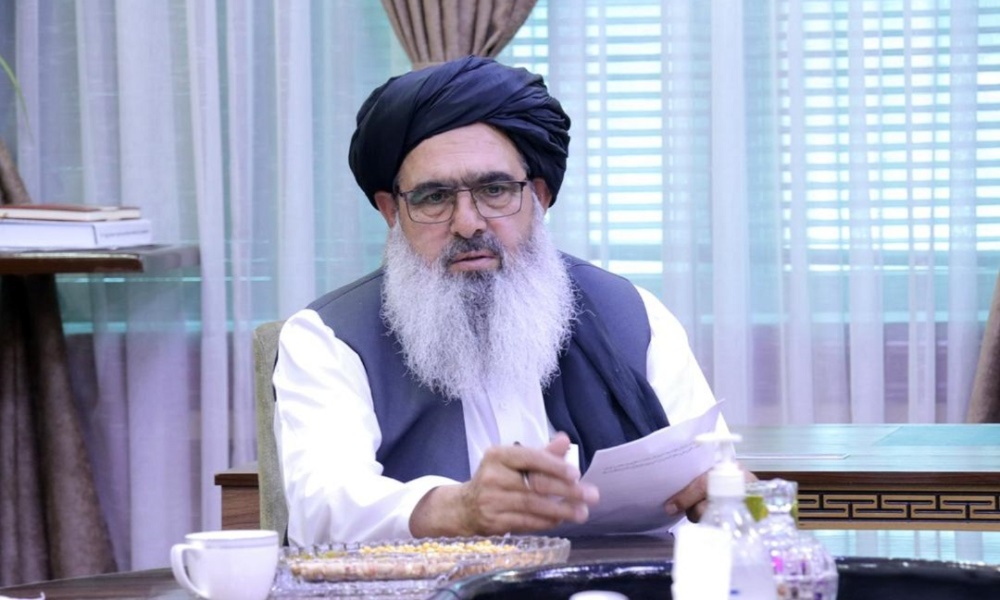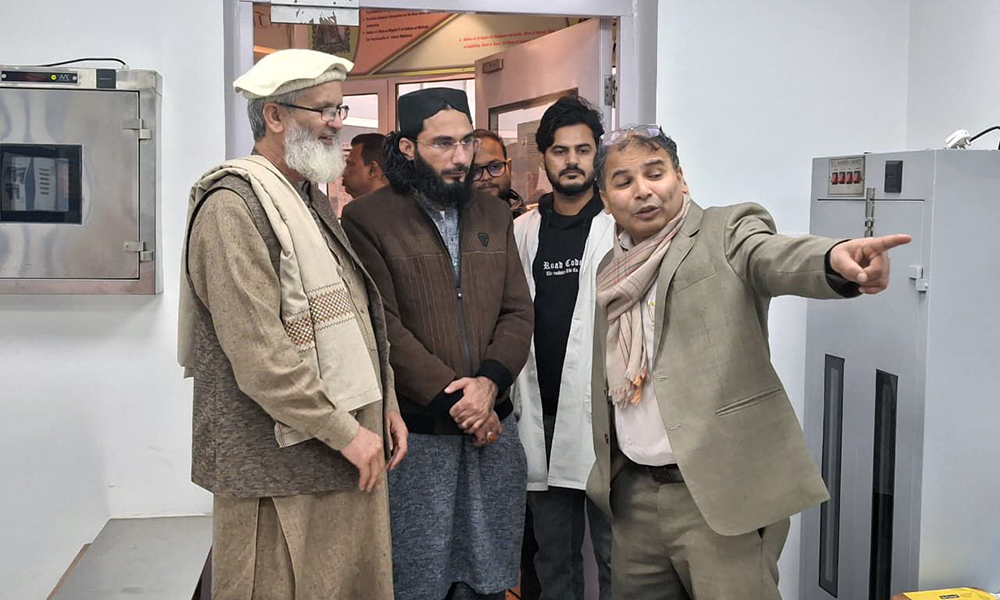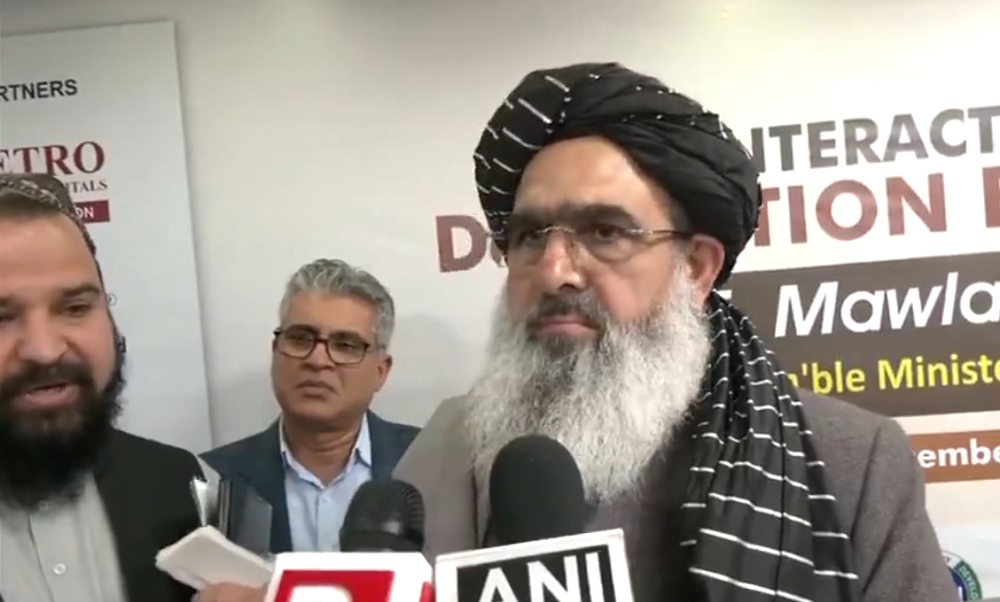Health
10-day measles vaccination campaign rolled out across Afghanistan

The Islamic Emirate of Afghanistan’s (IEA) Ministry of Public Health (MoPH) on Saturday rolled out a nationwide measles vaccination campaign and hopes to reach at least seven million children.
Public Health Ministry officials said the campaign will run for 10 days and that vaccination teams have been set up at mosques, schools and health centers.
“Mobile measles vaccination teams have come to mosques, schools and health centers. Please vaccinate your children between the ages of nine months and five years for free,” said Qalandar Ebad, Public Health minister.
Sharafat Zaman, the spokesperson of MoPH meanwhile said the aim of this campaign is to save the lives of children who are exposed to measles and emphasized that the vaccine will help to prevent deaths caused by measles among children.
“In this campaign, about seven million children will be vaccinated throughout the country, which covers 10 days, and its goal is to eradicate measles,” said Zaman.
According to doctors, measles is highly contagious, and on average, each person with this disease infects fifteen other healthy people.
“If children get measles, it causes all family members to be infected. Therefore, we recommend families to vaccinate their children,” said Munir, a doctor.
A number of families are happy with the start of the campaign, but say in some cases, despite the use of the vaccine, their children have been infected with this disease.
Health
Afghan health minister hails India’s support, calls medical visas vital for patients
Jalali said India is planning to build a 30-bed hospital in Kabul’s Bagrami district, which is expected to include an oncology center, a trauma unit, and maternal and child healthcare clinics.

Afghanistan’s Minister of Public Health, Noor Jalal Jalali, has praised India’s long-standing support for Afghanistan’s healthcare sector, describing Indian medical visas as a “vital humanitarian channel” for Afghan patients.
In an interview with an Indian television network, during his official visit to New Delhi, Jalali said Afghans have long relied on India for medical treatment, noting that the facilitation of medical visas has enabled thousands of patients to access advanced healthcare services in recent years.
He welcomed India’s contributions to Afghanistan’s health infrastructure, highlighting the Indira Gandhi Institute of Child Health in Kabul as one of the country’s most important pediatric hospitals.
India has supported the facility through the establishment of a thalassemia center, a modern diagnostic unit, upgrades to heating systems, and plans to provide a CT scan machine.
Jalali said India is also planning to build a 30-bed hospital in Kabul’s Bagrami district, which is expected to include an oncology center, a trauma unit, and maternal and child healthcare clinics.
He added that India has fitted around 75 Afghan patients with prosthetic limbs under the Jaipur Foot program and donated 20 ambulances.
During talks with India’s Minister of Health and Family Welfare, Jalali called for expanded cooperation in medical equipment, pharmaceutical regulation, training of healthcare workers, and the supply of essential medicines, particularly cancer drugs. He said India has pledged to provide these medicines on an urgent basis.
The Afghan health minister stressed the importance of capacity building, including training Afghan doctors in India and deploying Indian medical teams to Afghanistan.
He also said agreements have been reached to cooperate in traditional medicine, including Ayurveda and Unani practices, with plans to establish a Traditional Medicine Institute and Research Center in Afghanistan.
Jalali noted that Afghanistan has diversified its pharmaceutical import routes to ensure a steady supply of medicines and address concerns over counterfeit and substandard drugs through stronger regulation.
He described Afghanistan–India relations as people-centric and rooted in humanitarian values, expressing hope that cooperation in healthcare, pharmaceuticals, and medical infrastructure will continue to deepen.
Health
Afghan health officials visit Indian medical institute to expand ties
India has historically been a key partner in Afghanistan’s health and education sectors, providing training, medical support and institutional cooperation.

During an official visit to India, a technical delegation from Afghanistan’s Ministry of Public Health visited the Hamdard Institute of Medical Sciences and Research (HIMSR) in New Delhi, as part of efforts to strengthen cooperation in the health sector, particularly in the field of traditional medicine.
Officials and senior professors at HIMSR welcomed the Afghan team and provided detailed briefings on the institution’s academic programmes, research activities and medical services.
Discussions focused on opportunities for closer collaboration in traditional and integrative medicine, an area where Hamdard has long-standing expertise and international recognition.
HIMSR’s leadership expressed readiness to work with Afghan health authorities on joint research initiatives, quality testing and standardisation of traditional medicines through Hamdard’s laboratories, as well as knowledge-sharing programmes. The institution also pledged to offer scholarships and specialised training opportunities for Afghan doctors and medical professionals.
The visit comes as Afghanistan seeks to rebuild and strengthen its public health system amid ongoing economic and humanitarian challenges, with an emphasis on cost-effective and culturally accepted healthcare approaches such as traditional medicine.
India has historically been a key partner in Afghanistan’s health and education sectors, providing training, medical support and institutional cooperation.
Both sides said enhanced collaboration would contribute to improving public health outcomes, standardising traditional medicine practices, and expanding scientific and medical institutions in Afghanistan.
They reaffirmed their commitment to developing the partnership in a sustainable manner, aimed at long-term capacity building and mutual benefit.
Health
Amid strained Pakistan ties, Afghanistan turns to India for health cooperation

Afghanistan’s Minister of Public Health, Noor Jalal Jalali, has said that Afghanistan is looking to strengthen health-sector cooperation with India, as relations with Pakistan have cooled and the country seeks alternative partners to meet its medical needs.
Speaking during his visit to India, Jalali said his primary focus is combating disease and improving public health, stressing that he is ready to seek assistance and cooperation from any country willing to help Afghanistan in this regard.
“My enemy is disease,” Jalali told reporters. “I will shoot at it from anywhere it is possible.”
He said the purpose of his visit is to open a new chapter of cooperation between Afghanistan and India.
Jalali noted that a significant portion of Afghanistan’s medicine requirements had previously been met by Pakistan. However, amid strained relations with Islamabad, the Islamic Emirate is now exploring alternative options to ensure the steady supply of essential medicines. He added that India could serve as a key partner.
-

 Latest News2 days ago
Latest News2 days agoAfghanistan signs 30-year deal for marble mining in Daikundi
-

 Latest News4 days ago
Latest News4 days agoAfghan border forces prevent illegal entry of hundreds into Iran
-

 Latest News3 days ago
Latest News3 days agoPakistan summons Afghan diplomat over deadly attack in North Waziristan
-

 Latest News2 days ago
Latest News2 days agoAfghan health minister calls for medical cooperation between Kabul and New Delhi
-

 Latest News4 days ago
Latest News4 days agoJapan allocates nearly $20 million in humanitarian aid for Afghanistan
-

 Latest News3 days ago
Latest News3 days agoKarzai urges reopening of girls’ schools and universities for Afghanistan’s bright future
-

 Health5 days ago
Health5 days agoAfghanistan seeks India’s support in standardizing traditional medicine
-

 World5 days ago
World5 days agoUS readies new Russia sanctions if Putin rejects peace deal, Bloomberg News reports
























